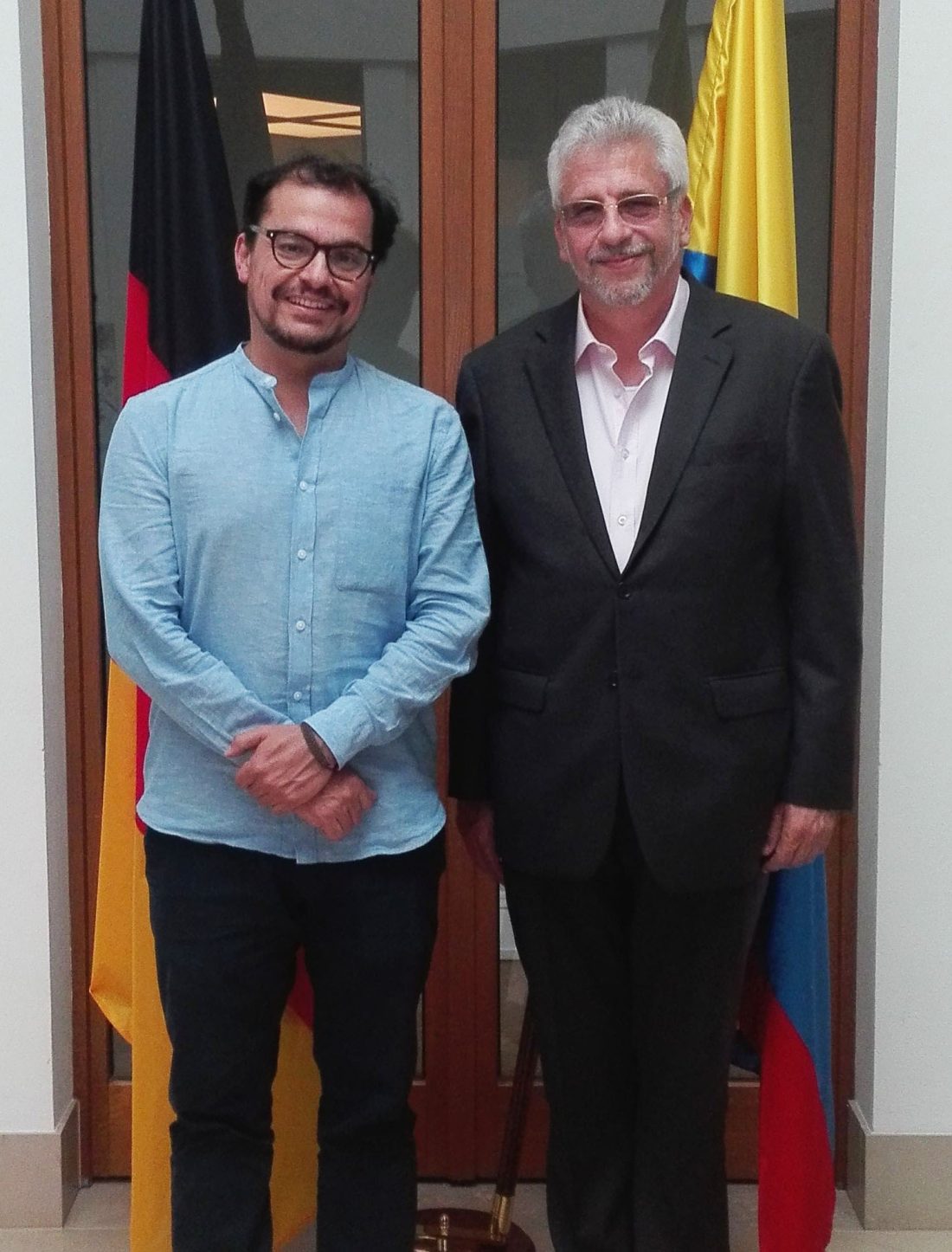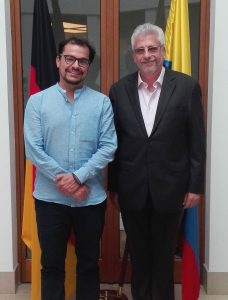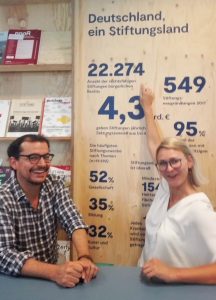
CAPAZ Administrative Director visits Germany to explore cooperation ties
In his recent visit to Germany, the CAPAZ Administrative Director, Dr. Carlos Nupia had a varied agenda of activities with different institutions and universities.
Dr. Nupia met with the Colombian Ambassador to Germany, Hans-Peter Knudsen, the Association of German Foundations (Bunderverband Deutscher Stiftungen) and Karsten Gerlof, Chancellor of the University of Potsdam.
He also paid an academic visit to the Technical University of Munich to advance the formulation of a research project on the production of scientific knowledge and peace.
The world of foundations in Germany
In the spirit of better understanding the dynamics of foundations in Germany and exploring possibilities for cooperation in the area of peace and conflict, Dr. Nupia met with Dr. des. Hanna Stähle, Advisor to the General Secretariat for Strategic and International Projects of the Association of German Foundations.
Dr. Nupia reported on the results of the 25 exploratory projects funded by the CAPAZ Institute to date, in order to identify areas of common interest with German foundations with international scope in their work.
In Germany, there are about 23,000 foundations, approximately 10% of which are active internationally, mainly in the European Union. The foundation sector is very dynamic in Germany: 554 new foundations were created in 2018 alone.
Some of the foundations working on peace issues with which cooperative relationships could be explored are as follows: Open Society Foundations, Ariadne, German Foundation for Peace Research and Robert Bosch. CAPAZ will continue its exploration work in order to open spaces for cooperation on peace issues.
The association aims to support the development of the foundation sector in Germany and to increase public recognition of the role of these non-profit organisations in modern society.
Specific projects with German universities
The purpose of the visit to the University of Potsdam was to learn about the “Future-oriented management strategies and sustainable organisational development in a dynamic environment” project, coordinated by the University of Potsdam. Universidad Pontificia Javeriana de Cali, Universidad Pontificia Bolivariana in Bucaramanga, and Asociación Colombiana de Universidades (ASCUN) all participate in the project.
The main objective of the project -currently in full implementation phase- is to strengthen the management capacity of the participating institutions on issues of digitization and quality of administration in education. It also strengthens the academic cooperation relations between Colombia and Germany. Karsten Gerlof, Chancellor of the University of Potsdam, contacted CAPAZ to explore cooperation in the production of educational material based on new information and communication technologies.
Conference at the Technical University of Munich
Dr. Nupia presented the lecture: Knowledge Production in Transitional Societies: the Case of the Colombian Peace Process, At the Munich Centre for Technology in Society, Technical University of Munich (TUM), as a conceptual approach to the relationship between the production of scientific knowledge and peacebuilding in a country in transition such as Colombia. The conference also includes empirical information collected from the management experience of the CAPAZ Institute in Colombia.
During their visit to TUM, Dr. Nupia and Dr. Katrin Hahn worked on the structuring of a research proposal on the co-creation of knowledge and peace in times of transition.
(Text: Carlos Nupia. Revision: Claudia Maya. English version: Tiziana Laudato)





